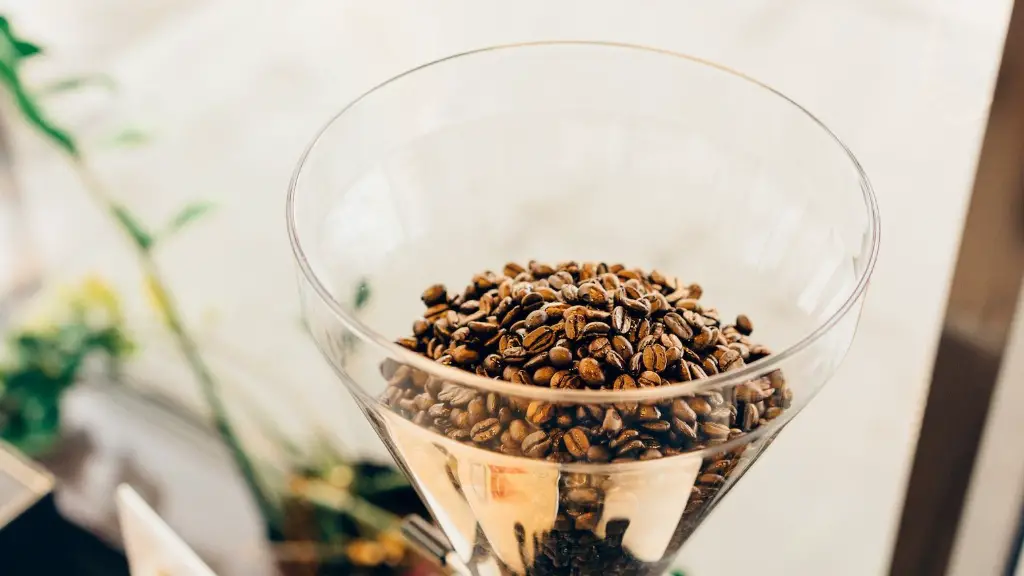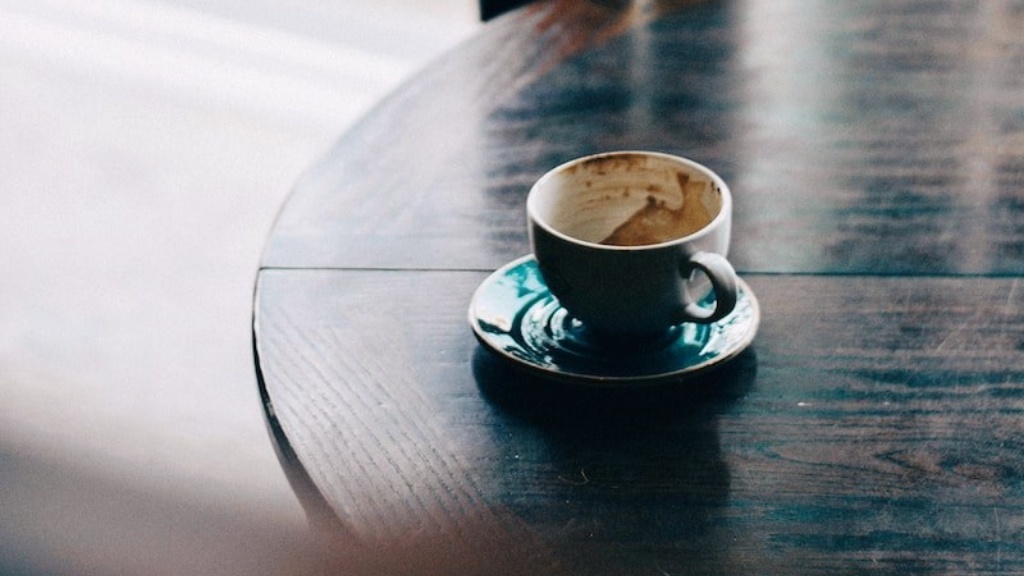Many of us drink coffee on a daily basis and whitening our teeth is a beauty treatment that is becoming increasingly popular. However, is it safe to combine the two? What if you drink coffee after teeth whitening?
It is understandable that when you whiten your teeth, you will want to show them off. Coffee is a popular beverage and can be a nice accompaniment to a social gathering. But when you combine the two, it is important to understand the risks and be aware of the precautions you should take.
According to dentists, drinking coffee after a teeth whitening procedure is not recommended. This is because coffee contains staining agents called chromogens, which can penetrate the surface of the teeth and cause them to stain again. Furthermore, coffee contains acids which can weaken the enamel and make it easier for the staining agents to penetrate. In addition, it should be noted that tea and red wine have similar effects to those of coffee.
If you must drink coffee, it is advisable to wait at least 24 hours after the teeth whitening procedure. This is to give the enamel enough time to seal, and to ensure that the bleaching solutions have worked effectively. During this time, you should also steer clear of foods and drinks that contain artificial colors as these can also cause staining. It is also recommended to rinse your mouth with plain water after having your beverage, in order to wash away any staining agents that may have adhered to the teeth.
The best way to protect your pearly whites is to avoid staining agents altogether. This means that you should brush your teeth after every meal and drink plenty of water. If you must consume staining agents, be sure to follow the advice of your dentist. After teeth whitening, wait at least 24 hours before drinking coffee. If you do drink it, rinse your mouth with water afterwards.
Staining agents and their dangers
When it comes to avoiding staining agents, there are a few you should be aware of. Coffee, tea, red wine, and dark-colored sodas are all notorious for staining teeth. Even worse, they all contain acids which can weaken the enamel and allow the staining agents to penetrate deeper and cause greater damage. If you must consume these beverages, be sure to rinse your mouth with water afterwards to help wash away any staining agents that may have adhered to the teeth.
It is also important to be aware of the potential dangers of artificial colors. Artificial colors can be found in many confectionaries and can also cause staining. Therefore, it is important to avoid consuming foods that contain artificial colors or to use a straw when drinking such beverages as to limit their contact with the teeth.
It is also important to understand that while teeth whitening can help to reduce staining, it is not a permanent solution. Therefore, it is important to protect the teeth by brushing after meals and avoiding staining agents.
Dental hygiene and whitening
Good dental hygiene is an important part of protecting your teeth from staining. Brushing twice a day and flossing once a day can help to reduce staining and protect the enamel of your teeth. In addition, it is also important to visit your dentist for regular cleaning and check-ups to help protect your teeth from staining.
When it comes to whitening teeth, there are a few options available. Whitening kits that can be bought over the counter are often used. However, it is important to note that these kits may not whiten the teeth as effectively as professional whitening treatments. Professional whitening treatments use strong bleaching solutions that can whiten teeth more effectively, but they can also be damaging to the teeth if not done properly.
It is important to speak to your dentist before using any whitening kits as they can help to recommend the right kind of whitening treatment for you. Professional whitening treatments often come with specific instructions on how to use them and what to expect. Furthermore, they can advise on the precautions that need to be taken post-procedure, such as avoiding staining agents.
Protecting your teeth from future staining
It is important to understand that teeth whitening is not a permanent solution. It is important to take steps to prevent staining of the teeth, such as avoiding staining agents and brushing twice a day. In addition, it is important to visit your dentist for regular check-ups and cleanings to help protect the teeth from staining and decay.
It is also important to understand how to protect your teeth from staining agents when you must consume them. If you are going to drink coffee or other staining beverages, be sure to rinse your mouth with plain water afterwards. This will help to wash away any of the staining agents that may have adhered to the teeth. Furthermore, it is important to use a straw when consuming such beverages to limit the contact they have with the teeth.
It is also important to understand that while whitening can help to reduce staining, it is not a permanent solution. Therefore, it is important to take steps to protect the teeth from staining and decay. Furthermore, it is important to understand the risks that come with consuming staining agents and how to protect the teeth from them.
The importance of regular dental check-ups
Visiting your dentist for regular check-ups and cleanings is essential to maintain healthy teeth, as well as protect the teeth from staining agents. Regular check-ups can help your dentist to identify any issues before they become more serious. Good dental hygiene is also important to protect the teeth from decay, as well as staining agents.
It is important to understand the risks that come with combining coffee and teeth whitening. It is important to remember that coffee contains staining agents and acids that can damage the enamel and make it easier for the staining agents to penetrate. Therefore, it is important to avoid drinking coffee for at least 24 hours after a teeth whitening procedure.
It is also important to protect the teeth from staining agents by avoiding them altogether or using a straw when consuming them. Furthermore, it is important to maintain good dental hygiene by brushing after meals and visiting your dentist for regular check-ups and cleanings.




